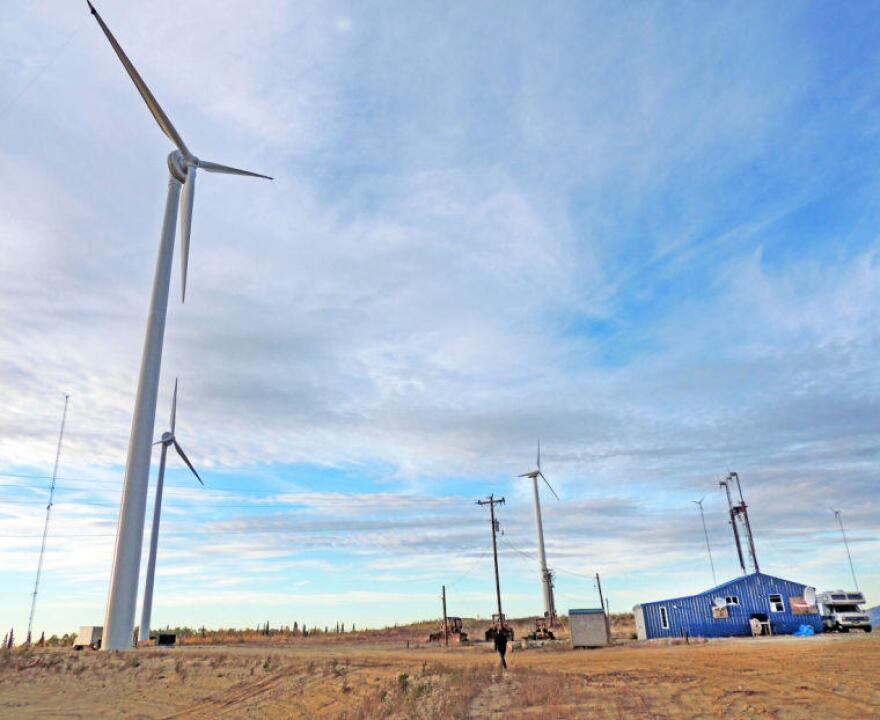If approved Fairbanks entrepreneur Mike Craft would manage wind-solar-battery facility in Delta Junction
Golden Valley Electric Association is reviewing a proposal by a Massachusetts-based company to generate up to 36 megawatts of electricity using wind and solar power, backed-up by a large battery system. As KUAC’s Tim Ellis reports, the project is proposed for Delta Junction and is being managed by longtime local wind energy entrepreneur Mike Craft.

Craft is a Fairbanks developer and owner-operator of Alaska Environmental Power, a Delta Junction-based wind farm that he’s operated for more than 10 years, selling up to 2 megawatts of its output to Golden Valley. Craft is now working with a new company, Delta Junction Renewable Resources that was founded by Ameresco, a company with extensive expertise in building and operating renewable-powered electrical-generating facilities.
“Ameresco is an international developer,” he said in a recent interview. ”They have wind projects all over the world, and they are huge into solar -- lots of solar projects.”

Craft and Ameresco now propose to use all that expertise to build and operate a much bigger facility than his Delta wind farm. The new facility would be powered by eight large wind turbines with solar and battery backup that would produce 36 megawatts, which he also hopes to sell to Golden Valley. He says Ameresco also is an industry leader in energy-storage technology, so the proposed project includes a Battery Energy Storage System that would provide up to 30 megawatts of backup power for up to an hour.
“It’s currently building the largest battery in the United States,” he said. “It’s being built in California.”
Craft says he’ll use the experience he’s gained from operating his wind farm, along with his years in the construction business, to help Ameresco build the new project on land it’ll lease from him next door to his existing facility in Delta.
“I’ll be providing technical advice going forward on the construction of the roads and foundations and working with the crane companies, because I know all those guys,” he said.
An Ameresco spokesperson declined comment on the project while it’s still early-on in the proposal phase.

Craft has proposed several renewable-energy-powered facilities in recent years that would generate electricity for sale to Golden Valley. But the co-op management and board has so far declined those proposals. He believes this project would address concerns they’ve raised in the past, especially over the challenge of regulating intermittent wind and solar power when the air is calm and the sun isn’t shining.
“It eliminates some of the issues that Golden Valley has brought up in the past with respect to regulation,” he said.
Golden Valley officials are studying the Delta Junction Renewable Resources proposal to determine whether it’s workable and how much the co-op can pay the company for the electricity the facility would produce.
Spokesperson Meadow Bailey says the review would among other things establish how much the utility would be able to pay Delta Junction Renewable Resources for the power it would generate. She said in a frecent interview that it would answer the question: “Does it financially make sense for Delta Junction Renewable?”
Bailey says the analysis is required by federal regulations when the co-op gets proposals from so-called qualifying facilities to generate and sell electricity. It’ll then calculate how much the co-op would pay for the power and include that information in a tariff it would file with the Regulatory Commission of Alaska.
The tariff must be filed by May 2nd.



